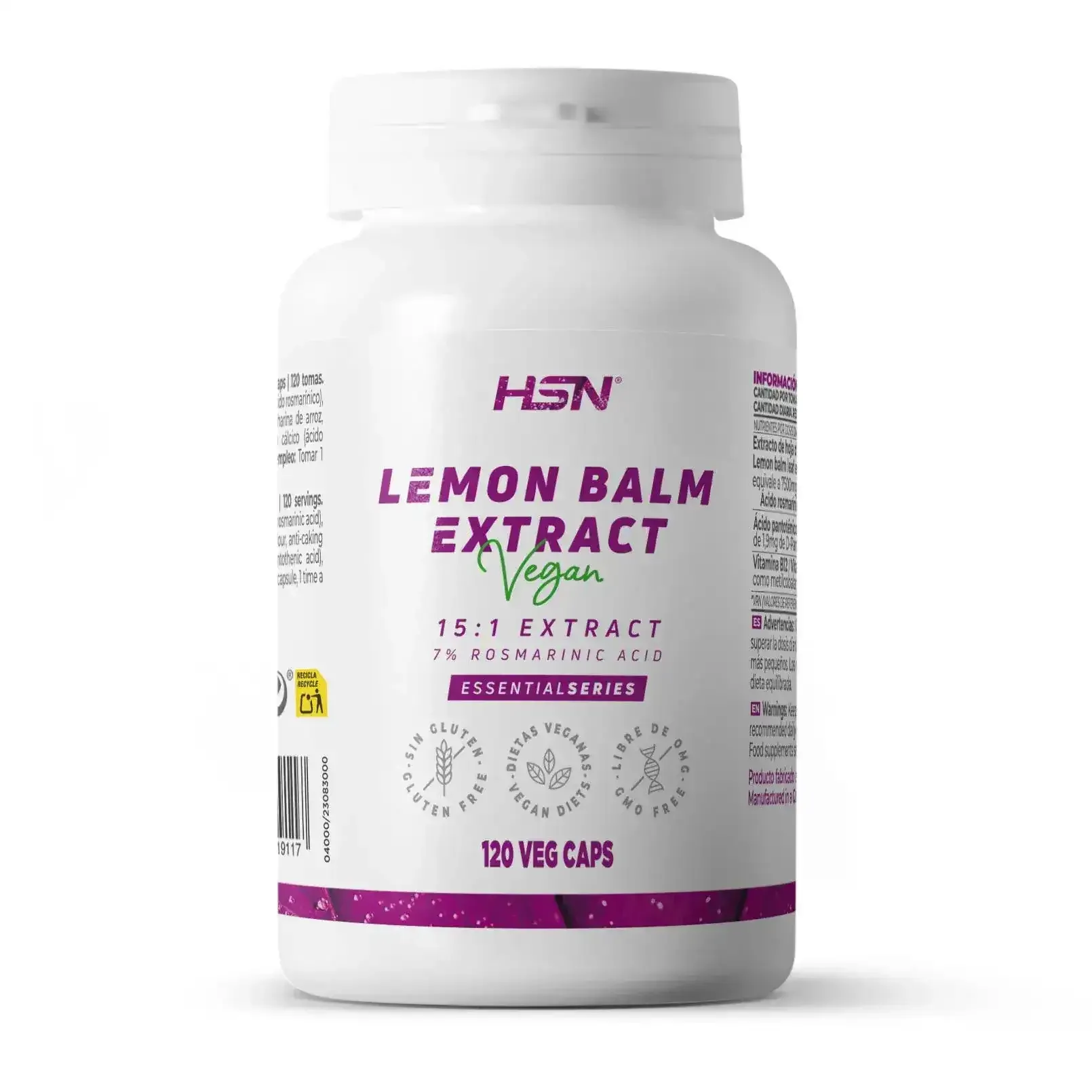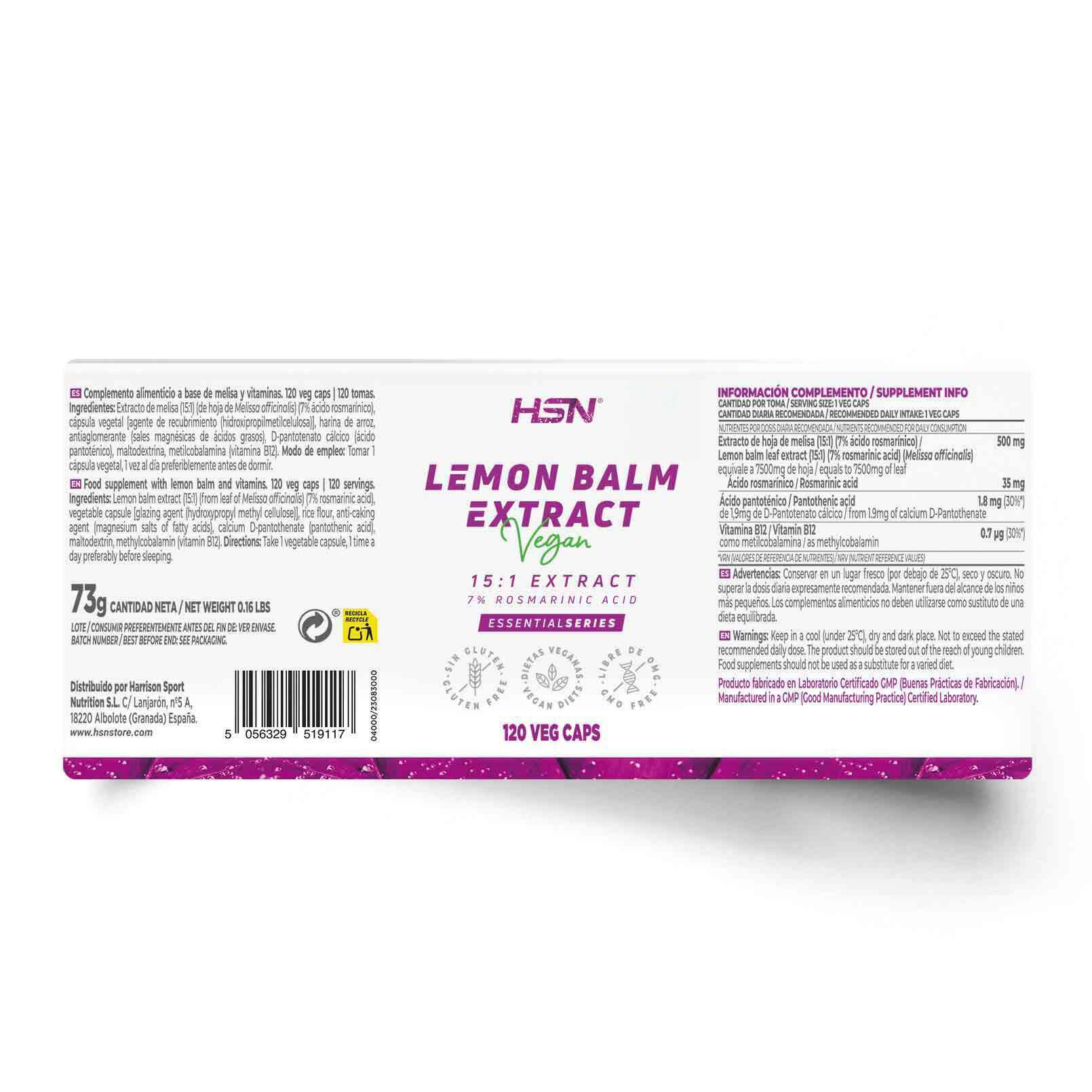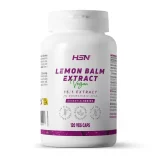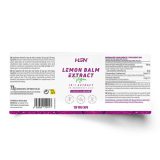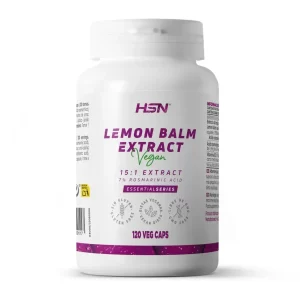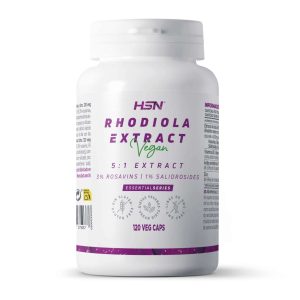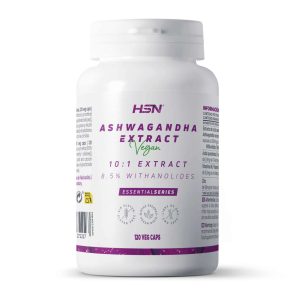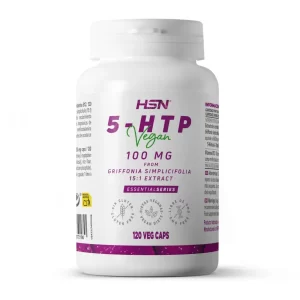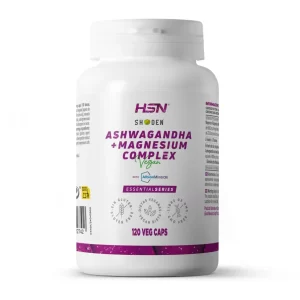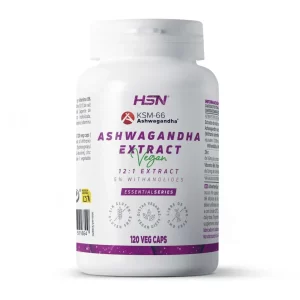- Lemon balm leaf extract (Melissa officinalis) – Standardized to 7% Rosmarinic Acid.
- Raw material 15 times more concentrated – Each capsule provides 500mg of extract equivalent to 7500mg of natural lemon balm leaf.
- Composition enriched with B vitamins: B5 and B12 that support the plant’s effects.
- The preferred plant of the Tudor house – Traditional use in central Europe and Asia.
- Lemon balm is used to help find better sleep – Take advantage of it in concentrated extract form!
- Dietary supplement suitable for all types of diets: Vegan, allergen-free, and calorie-free.
Lemon Balm Leaf Extract – Support for Rest and Calm
Lemon Balm Extract (15:1) 500mg from Essentialseries is a dietary supplement in vegetable capsules developed from a high-concentration extract of the certified plant leaf: Melissa officinalis, and standardized to 7% Rosmarinic Acid, one of its main characteristic components and the primary compound studied in relation to the plant’s properties. HSN’s formula is complemented with pantothenic acid and methylcobalamin as synergistic B vitamins to the activity of lemon balm.
Melissa officinalis is a perennial plant of the mint family, with a clear lemon essence; hence its leaves have been used for centuries in the regions it is native to: Europe and Central Asia, to prepare infusions and other derivatives from the plant itself. Lemon balm, due to its unique nutritional properties, has attracted the interest of herbalists for centuries, achieving its peak during the 16th century, the Tudor period, when it was considered a plant of great nutritional, ornamental, and spiritual value.
HSN lemon balm extract brings you all the benefits of the traditional plant presentation, in a concentrated and more convenient capsule form.
Lemon Balm for Use Before Bed or During Demanding Times
100% Leaf Origin Lemon Balm Extract – Without Less Valued Plant Parts
Lemon balm has a characteristic composition of different types of compounds that give it its aroma, flavor, and are responsible for the nutritional properties attributed to the plant; among them, volatile compounds, triterpenes, phenolic acids, and flavonoids stand out.
The issue with lemon balm is that its leaves, which are so valued and physiologically interesting, are the exception of the plant, as other parts like stems, flowers, or roots are of no interest to botanists and other researchers of herbal properties. These other parts do not have a varied nutritional composition, nor are they rich in nutritionally relevant compounds.
However, the leaves, rich in the previously mentioned compound families, have been highlighted for their characteristic and unique content in a phenolic compound known as rosmarinic acid, which has been isolated to study its behavior in detail. According to many scientists, it may be the main relevant compound of the leaves, responsible for the unique nutritional, physiological, and technological properties of this botanical species.
Guaranteed 7% Rosmarinic Acid Content
Given the importance of rosmarinic acid, not only have we extracted the plant using leaves, and not other parts of lemon balm that are less concentrated in phenols, but we have also maintained exceptional quality control during the cultivation, harvesting, and extraction process to ensure through batch analysis that the minimum rosmarinic acid content of our extract is 7%.
If you wonder about the importance of this, imagine the plant’s properties concentrated in one compound above all, as with caffeine in coffee, which is the main responsible, if not for all the properties of the bean, at least for many of them; the same happens with rosmarinic acid in lemon balm.
It is not only responsible for much of the plant’s characteristic essence and a key component of its essential oil, highly valued by perfumers; but many researchers identify it as the main compound responsible for the nutritional and physiological properties and the main cause of the interest this botanical species has sparked over the centuries.
Ensure a certified consumption of 7% rosmarinic acid in HSN lemon balm extract.
Certified Species: Melissa officinalis – Excellent Quality Control
Lemon balm is a species (Melissa officinalis) that has characterization issues.
This is because it is a plant of the Labiatae family (like mint), which tends to be confused during harvesting with other species or genera of plants from the Menthae tribe. Although this might not seem like a big problem, it is because the nutritional interest of lemon balm lies in the properties and characteristic composition of the officinalis species. If mixed with other plant species, this characterization is lost, as different plants have different properties and nutritional compositions.
At HSN, we have meticulously selected the raw material used in our herbal extract to use leaves of certified and assured Melissa officinalis species, with traceability control ensuring the plant’s unique characterization, without mixing or confusion with other species that could reduce the relevant compound content of the specific lemon balm species that is nutritionally interesting.
A Complete Formula with B Vitamins. Discover It!
In our unique formula, we have not only provided you with an excellent raw material with a high dosage completely safe to ensure the product’s effectiveness, but we have also improved it without losing the extract’s identity.
We have not developed a complex formula; you are still using the lemon balm extract as such, but we have added a source of two B vitamins: B5 (pantothenic acid) and B12 (cobalamin in methylated form) to complement its highlighted properties and make the daily dose more effective and useful for you.
Among other things, the added B vitamins help reduce tiredness and fatigue (vitamin B5) and contribute to the normal function of the nervous system (vitamin B12).
Lemon Balm is an Incomparable Plant. We Present It to You
In ancient Greece, over 20 centuries ago, lemon balm was used for its botanical characteristics in the preparation of teas and tonics; the plant, which is highly attractive to bees, caught the interest of scholars of the time.
Over time, its usage interest has not diminished, and it was in the late 15th century when the most significant pre-modern characterization of the plant’s characteristic compounds was achieved.
Lemon balm is known and used mainly for its characteristic properties on mood and rest; but not only that, it is also known for its antioxidant, digestive, energy system, and nervous system properties.
Above all, lemon balm helps maintain good and calm rest; not only supports relaxation but also helps reduce sleep latency (i.e., falling asleep faster).
Lemon balm can also help support relaxation and both physical and mental well-being; contributing to optimal relaxation.
Lemon balm has been scientifically proven to help maintain mood and cognitive function.
High Unit Concentration – Easy to Use
Thanks to the development of high-density encapsulation at HSN, with expertise in manufacturing the best dietary supplements, the product’s usage is more straightforward.
Instead of presenting you with a low-density powder extract, full of additives, requiring a large number of daily capsules, making it harder and inconvenient to fit into your daily routine, we have used a raw material that is a benchmark in density and nutritional richness, so with just 1 vegetable capsule per day, you get a relevant intake of the product to make the most of its physiological properties.
Moreover, our capsules are suitable for vegan diets because we have not used traditional gelatin-based coating agents. Instead, we used a vegetable-derived cellulose coating agent, called HPMC, which effectively, practically, and veganly contains the supplement powder.
Enjoy a quality product with an easy-to-use mode. Quality + Effectiveness HSN.
Melissa Usage Recommendations, Is It for You?
Lemon balm can be used by any adult, as it is suitable for both men and women, and there are no usage restrictions for older people.
It is usually recommended for people seeking to take advantage of the plant’s prominent properties on sleep and mood. Some of the groups most interested in lemon balm are:
- Young adults, especially during periods of high academic load.
- Athletes, both men and women, during seasons with intense training loads.
- Older adults.
- Perimenopausal women.
- People exposed to high work demands, during intensive work periods or night shifts.
Enjoy a lemon balm extract for you and your loved ones, with the quality you deserve.
Combine It with Other Compounds – HSN Recommendations
Melissa officinalis is a plant that can be combined with all types of herbal extracts and compounds as it has no contraindications for joint use.
It is usually used in combination with melatonin, 5-HTP, and L-Theanine.
You can find lemon balm extract in the composition of HSN’s formula to improve rest: Sleep Care.
References
- Petrisor, G., Motelica, L., Craciun, L. N., Oprea, O. C., Ficai, D., & Ficai, A. (2022). Melissa officinalis: Composition, Pharmacological Effects and Derived Release Systems—A Review. International Journal of Molecular Sciences, 23(7).
- Draginic, N., Jakovljevic, V., Andjic, M., Jeremic, J., Srejovic, I., Rankovic, M., … Milosavljevic, I. (2021). Melissa officinalis L. as a Nutritional Strategy for Cardioprotection. Frontiers in Physiology, 12, 661778.
- Scholey, A., Gibbs, A., Neale, C., Perry, N., Ossoukhova, A., Bilog, V., … Buchwald-Werner, S. (2014). Anti-stress effects of lemon balm-containing foods. Nutrients, 6(11), 4805–4821.
- Miraj, S., Rafieian-Kopaei, & Kiani, S. (2017). Melissa officinalis L: A Review Study With an Antioxidant Prospective. Journal of Evidence-Based Complementary and Alternative Medicine, 22(3), 385–394.
- Ghazizadeh, J., Sadigh-Eteghad, S., Marx, W., Fakhari, A., Hamedeyazdan, S., Torbati, M., … Mirghafourvand, M. (2021). The effects of lemon balm (Melissa officinalis L.) on depression and anxiety in clinical trials: A systematic review and meta-analysis. Phytotherapy Research, 35(12), 6690–6705.

